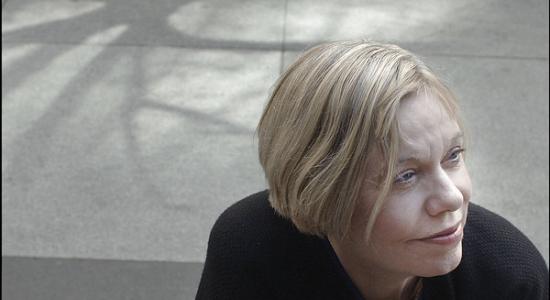Diverse Ways of a Freelance Monotheist

“I say that religion isn’t about believing things. It’s ethical alchemy. It’s about behaving in a way that changes you, that gives you intimations of holiness and sacredness.” – Karen Armstrong
When one thinks of Prophet Muhammad and pluralism, one can be academical- sorting out samples from the life of The Prophet, analysing them one by one and eventually separating all the wheats of diversity in the tradition of Islam from the chaff of monoliths. One can also be pragmatically an activist; thinking that the need of the hour is not to go back to the crusades, but to search for similarities in all faiths, ultimate search for God. Karen Armstrong fits well in both the clothes.
A freelance monotheist- this is how Karen Armstrong refers to herself. Eager to meet God she joined a convent to be a nun at her age of seventeen. After seven unhappy years she leaves the convent to pursue literature at oxford. But convent life had profoundly altered her, and coping with the outside world and her expiring faith proved to be excruciating. What she found, in learning, thinking, and writing about other religions, was the ecstasy and transcendence she had never felt as a nun. By athe end she becomes a self-taught theologian and author of a string of books, among them A History of God, which strides through four millennia and across three faiths – Judaism, Christianity and Islam – with contagious gusto and immense learning. Armstrong has written two books about this experience: Through the Narrow Gate, about her seven years in the convent, and The Spiral Staircase, about her subsequent spiritual awakening, when she developed her iconoclastic take on the major monotheistic religions — and on the strains of fundamentalism common to all. Gripping, revelatory, and inspirational, The Spiral Staircase is an extraordinary account of an astonishing spiritual journey. Karen Armstrong writes immensely on how our faiths shaped world history and drive current events. She has written more than 20 books on faith and the major religions, studying what Islam, Judaism and Christianity have in common, and how our faiths shaped world history and drive current events.
She addresses the question of fundamentalism in our supposedly secular age governed by reason and technology in her book “The Battle for God”. Contrary to popular belief, fundamentalism is not a throwback to some ancient form of religion but rather a response to the spiritual crisis of the modern world. As Armstrong argues, the collapse of a piety rooted in myth and cult during the Renaissance forced people of faith to grasp for new ways of being religious–and fundamentalism was born. Armstrong focuses here on three fundamentalist movements: Protestant fundamentalism in America, Jewish fundamentalism in Israel, and Islamic fundamentalism in Egypt and Iran–exploring how each has developed its own unique way of combating the assaults of modernity.
Unlike many other biographies of Prophet Muhammad (pbuh), Armstrong begins her book “Muhammad A Biography of The Prophet” by describing the perception of the Prophet in the West. She begins in the 9th century and ends at the present day. Interestingly, she titles the first chapter as Muhammad the Enemy to summarize the Western perception. Overall, the book makes considerable accomplishments in creating a bridge between the Western mind and main Islamic approaches through the narration of the life of the Prophet. In this regard, the book differs from almost all other biographies and plays a crucial role in creating understanding between the East and the West.
Why has God become unbelievable? Why is it that atheists and theists alike now think and speak about God in a way that veers so profoundly from the thinking of our ancestors? Answering these questions with the same depth of knowledge and profound insight that have marked all her acclaimed books, Armstrong makes clear how the changing face of the world has necessarily changed the importance of religion at both the societal and the individual level. Yet she cautions us that religion was never supposed to provide answers that lie within the competence of human reason; that, she says, is the role of logos. The task of religion is “to help us live creatively, peacefully, and even joyously with realities for which there are no easy explanations.” She emphasizes, too, that religion will not work automatically. It is, she says, a practical discipline: its insights are derived not from abstract speculation but from “dedicated intellectual endeavor” and a “compassionate lifestyle that enables us to break out of the prism of selfhood.” Focusing on Christianity, Judaism, Islam, Buddhism, Hinduism, and Chinese spiritualities Armstrong examines the diminished impulse toward religion in our own time, when a significant number of people either want nothing to do with God or question the efficacy of faith.























Connect
Connect with us on the following social media platforms.